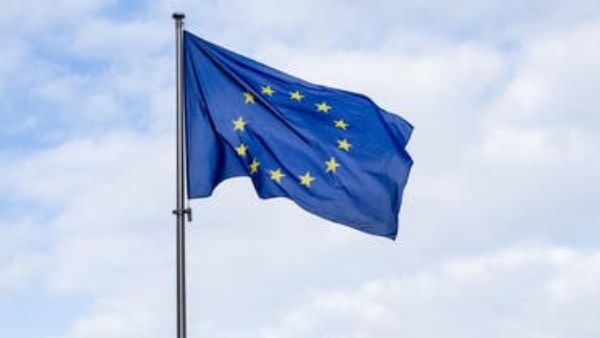
Consumer prices rose 2.9% from a year ago in December
German Inflation Up More Than Expected, Backing ECB Caution

German inflation accelerated more than anticipated last month, backing the European Central Bank’s plans to keep cutting interest rates only gradually.
Consumer prices rose 2.9% from a year ago in December, up from 2.4% in the previous month. That’s higher than all estimates by analysts in a Bloomberg poll. The acceleration was driven by energy and food costs, the statistics office said.
German short-term yields pushed higher after the release. The yield on two-year debt was up four basis points at 2.2%, while traders trimmed ECB rate-cut bets slightly.
Monday’s data follow figures from Spain showing faster-than-expected price gains of 2.8% last month. Economists also see the euro-area number, due Tuesday, ticking up to 2.4%.
Such an outcome would probably make bigger rate cuts, which some ECB Governing Council members had floated, less likely. While euro-area inflation retreated rapidly in 2024, it’s now seen fluctuating around its current level. Officials still plan to hit their 2% goal by year-end.
In Germany, factors including an increase in the cost of the nationwide public-transport ticket and a higher national carbon price are set to keep inflation pressures elevated before snap elections next month that look set to end Olaf Scholz’s stint as chancellor.
Like other incumbents, the cost-of-living crisis that struck after Russia invaded Ukraine in 2022 has taken a toll on Germany’s leader. The Bundesbank only sees inflation easing to 2.4% this year from 2.5% in 2024, before returning to the ECB’s target in 2026.
Underlying prices are a key concern, especially in the services sector. Inflation in that part of the economy has been stuck around 4% in the euro zone, driven by robust wage increases to offset the inflation of recent years.
German services inflation edged up to 4.1% from 4%, according to national data.
After a fourth reduction in borrowing costs last month, ECB policymakers still agree they can cut further, to at least a neutral setting that neither restricts nor stimulates economic growth. While that’s difficult to calibrate in real time, investors expect around 100 basis points of cuts in 2025 — taking the ECB’s deposit rate to 2%.





-1120252475029447.jpg)













